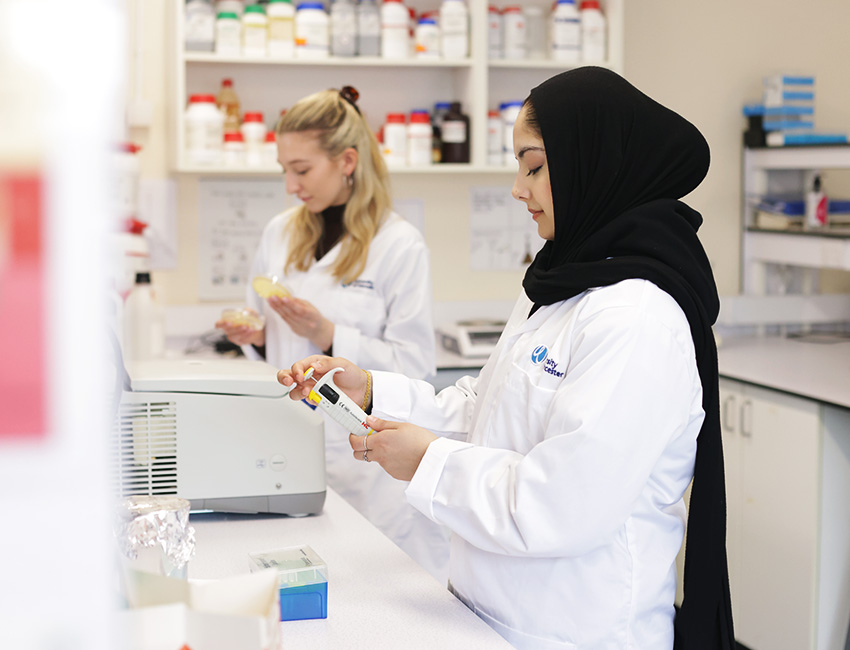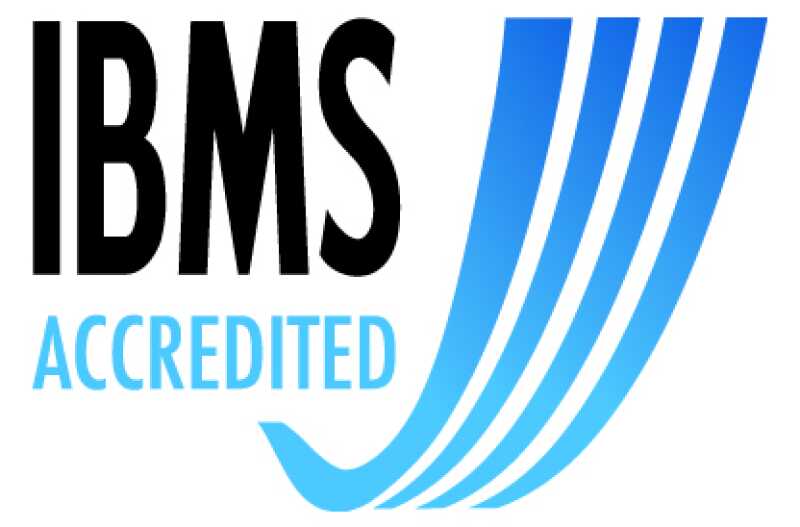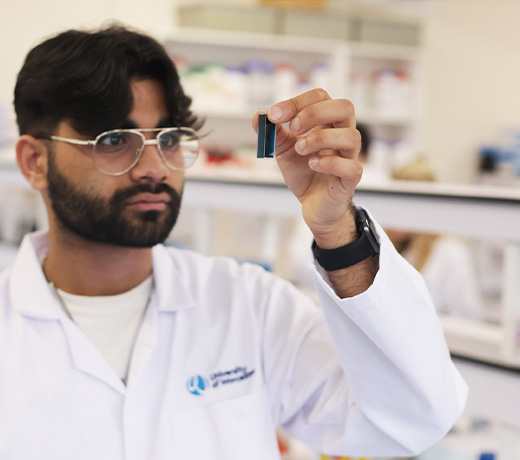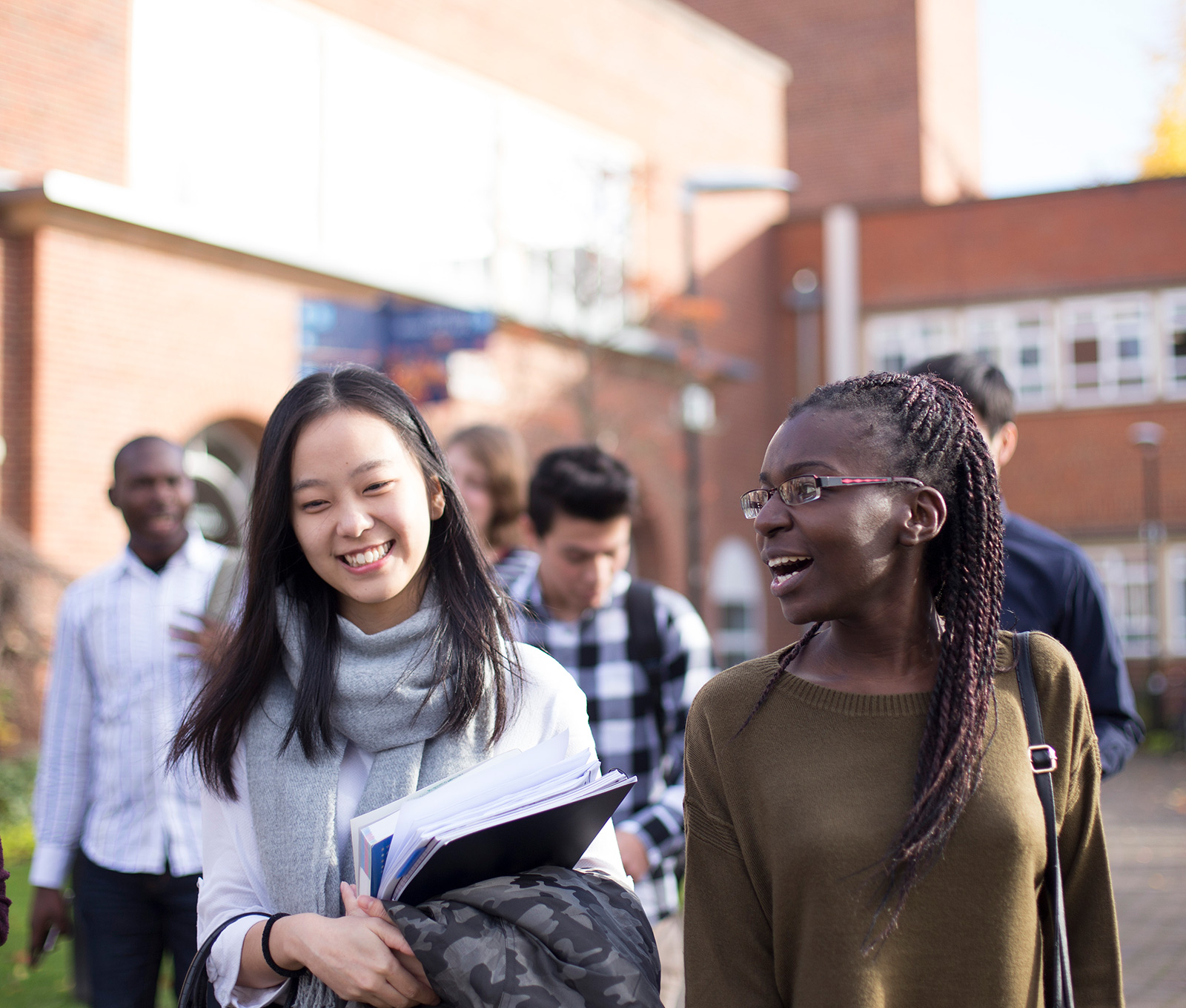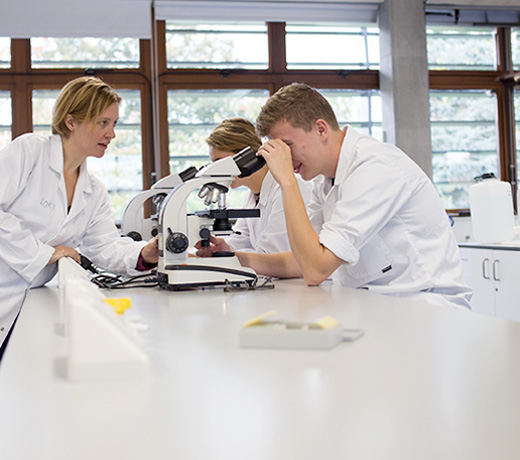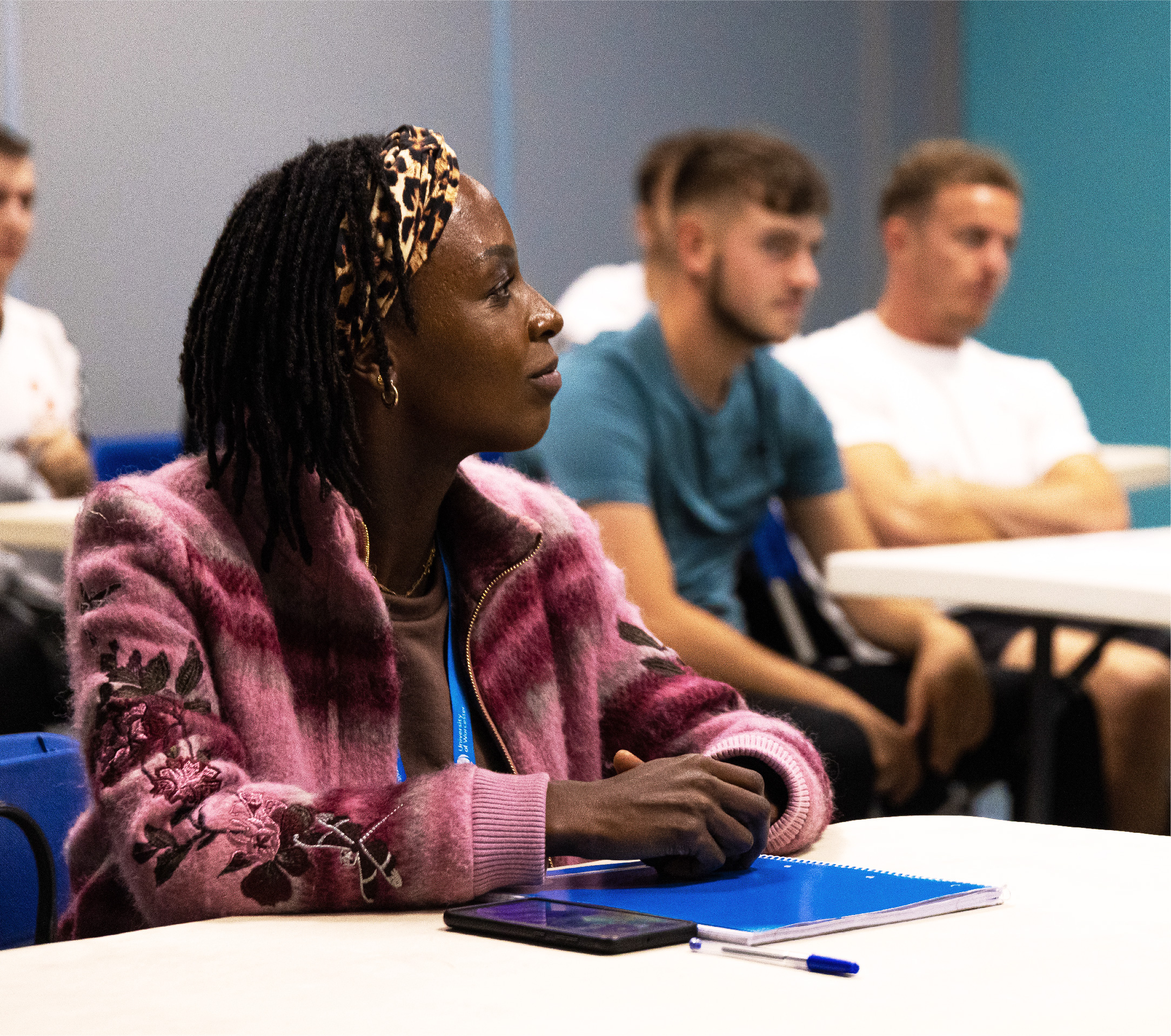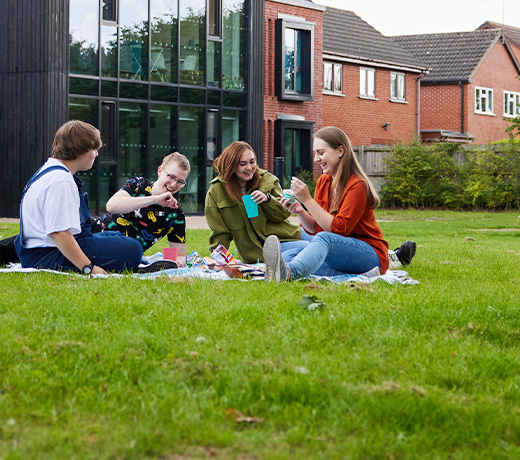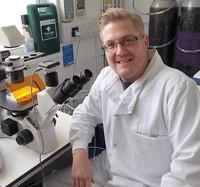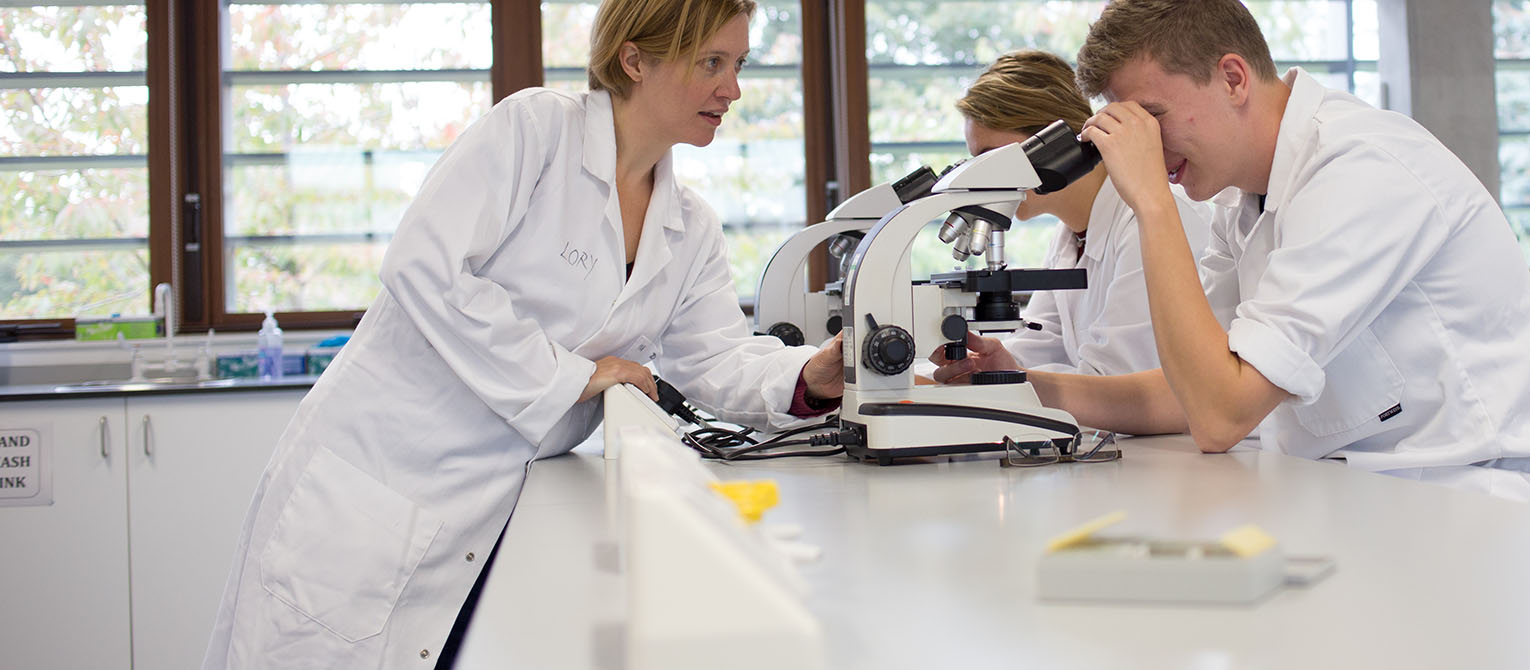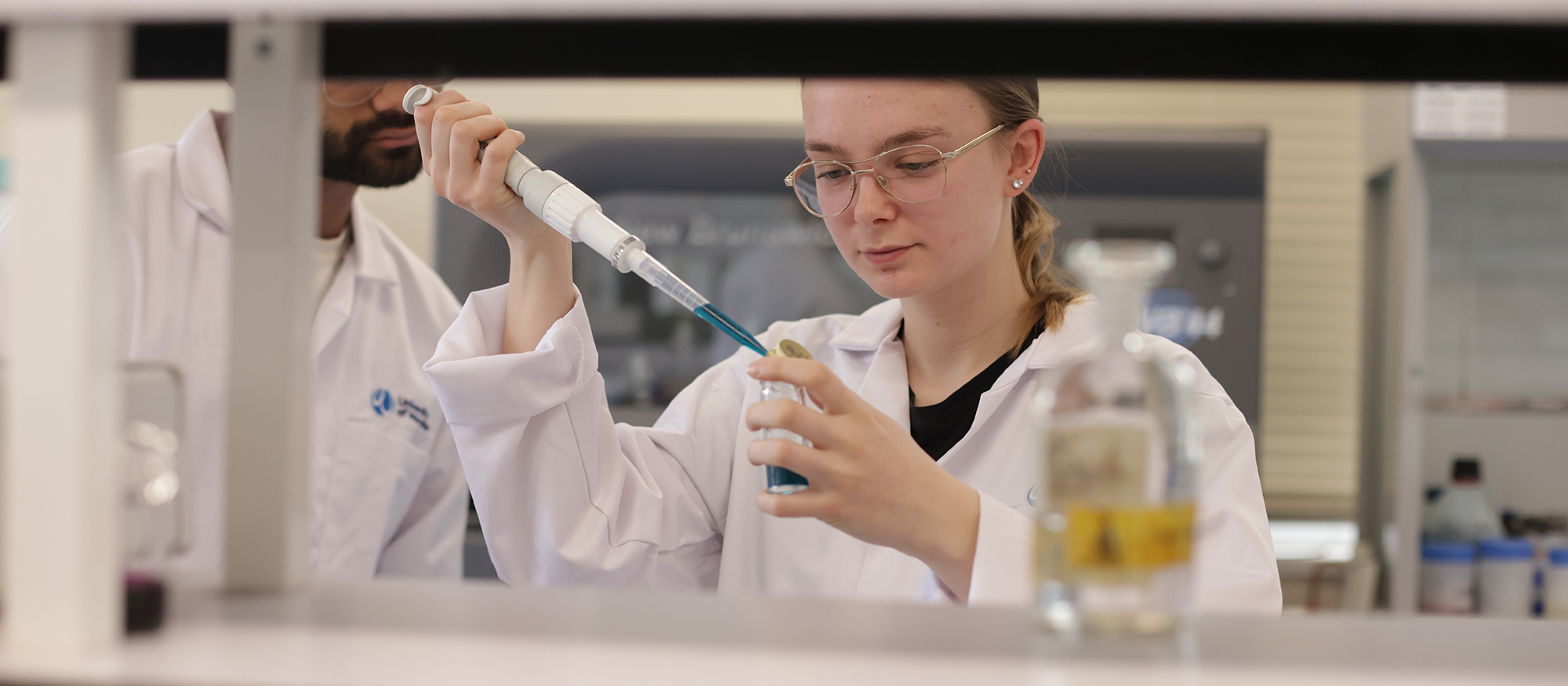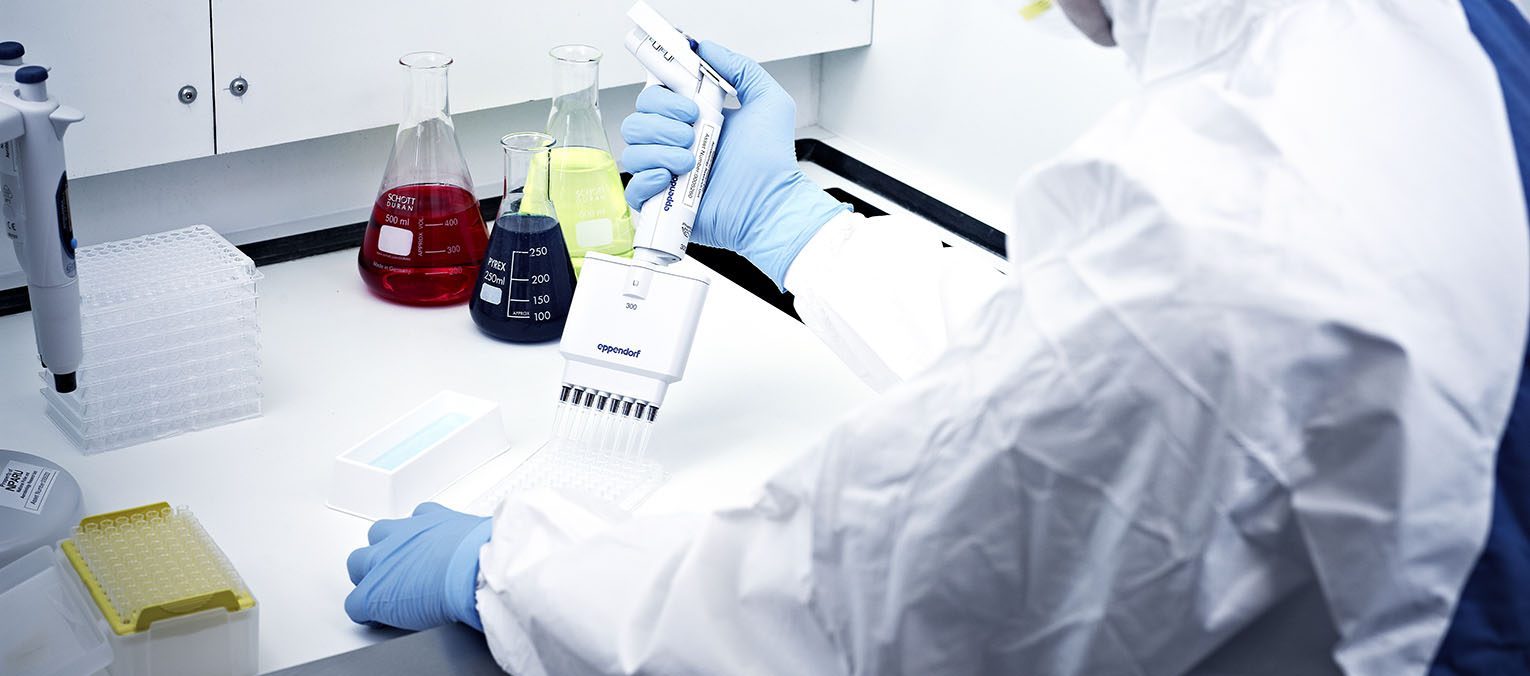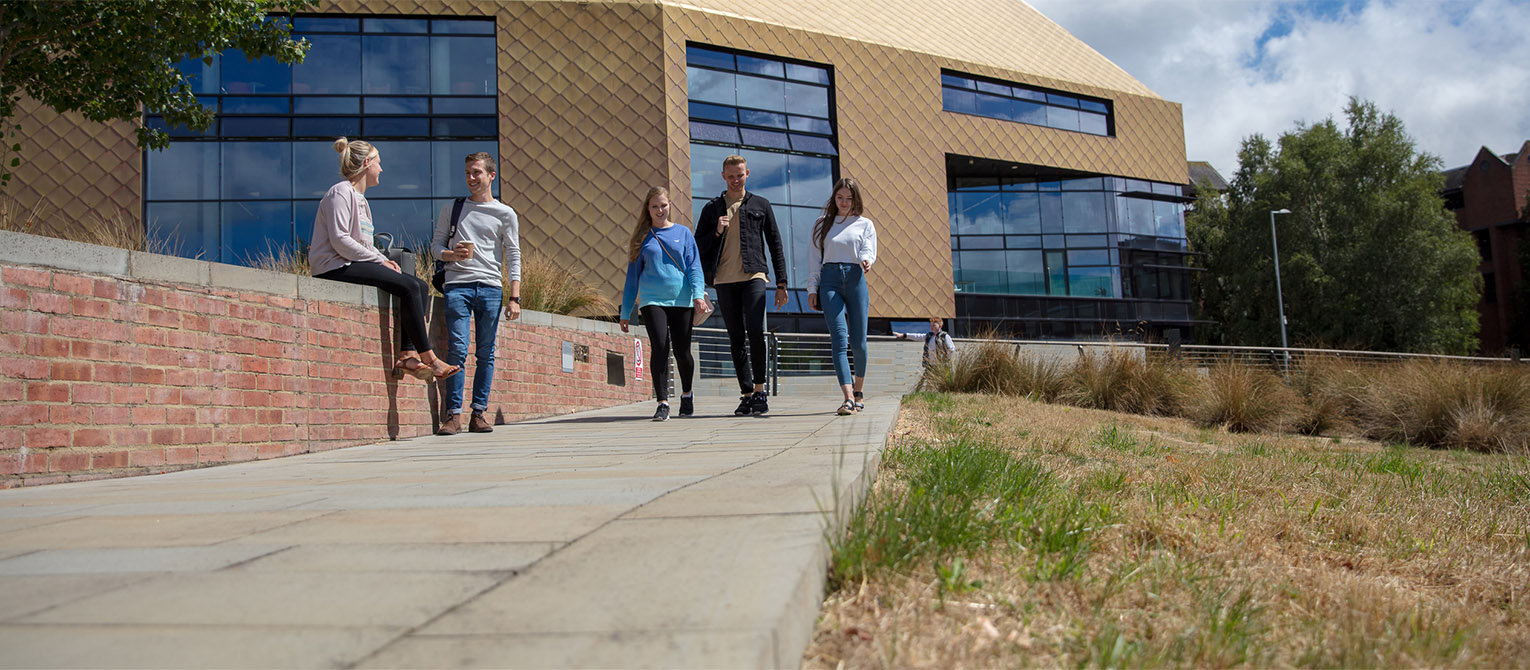As a biomedical scientist, your skills and qualifications will be recognised across the UK and worldwide. Qualified graduates are highly sought after in pathology centres, forensic science laboratories, research institutions and in the biotechnology and pharmaceutical industries.
Ideal preparation if you are considering becoming a doctor and applying for Graduate Entry Medicine
in the UK for Quality Education
Accredited by the Institute of Biomedical Science (IBMS) the leading professional body for biomedical scientists and students - advancing knowledge and setting standards in biomedical science.
First for jobs
The University of Worcester is first in the UK for sustained employment, further study or both, five years after graduation (excluding specialist institutions) - Longitudinal Educational Outcomes Survey 2024. Read more.
Final year biomedical science students at Worcester are guaranteed an interview for our graduate entry Medicine MBChB, provided they are predicted a 2:1 or better and are able to meet all other course entry requirements, which include passing either the UCAT (University Clinical Aptitude Test) or the GAMSAT (Graduate Medical Schools Admission Test) to a requisite level.
Overview
Biomedical science combines the natural sciences with medicine, looking at the biology of the human body and investigating the causes and effects of disease. Biomedical scientists are at the heart of healthcare, driving modern medicine through analysis of patient samples to diagnose disease, assess the effectiveness of treatment, monitor organ function, and provide scientific information to help doctors make informed clinical decisions.
- Benefit from a course with small class sizes and outstanding facilities, taught by staff with experience in both academic research and professional NHS laboratories.
- Gain professional skills through practical, lab-based investigations, lectures and collaborative seminars. You will have opportunities to apply for work placements and shadowing through our local employer links.
- In your final year, you can choose between two optional modules depending on your field of interest.
- You’ll graduate with the knowledge necessary to become an HCPC-registered biomedical scientist in the NHS or to pursue an academic research career.
Placements
Subject to approval, you will have the opportunity to apply for a placement year between your second and third years of study. You can choose to apply to one of our local NHS partners to complete your HCPC registration portfolio, or pursue internships in the industry to enhance your practical and transferable skills.
Discover Biomedical Science
Course content
On this IBMS-accredited course most modules are mandatory. In your final year, you can choose between two optional modules depending on your field of interest.
Our courses are informed by the latest research and developments in the field, as well as feedback from students and employers. Therefore, modules do occasionally change to keep the course up-to-date and relevant.
Careers
Many students choose to study biomedical science because they want to make a difference to people’s lives.
This IBMS accredited biomedical science degree will prepare you for a job as a biomedical scientist in a hospital, working with healthcare services to test samples for the diagnosis and treatment of diseases. Or, you may want to or continue your studies with a postgraduate degree, such as in Graduate Entry medicine.
Throughout your studies, you will be supported by expert staff who will help you prepare your CV and polish your job interview skills.
Our graduates have successfully gained jobs as:
- Biomedical Scientists
- Genetic Counsellors
- Research Scientists
- Medical Laboratory Assistants
By studying biomedical science, you’ll develop key skills in problem-solving, critical thinking, data evaluation and communication that will be valuable to many areas of employment. These transferable skills could lead to you considering other career paths, including:
- Scientific Communications
- Medical Sales Specialist
- Field Application Scientist
- Clinical Trials Manager
Biomedical science graduates often successfully apply to train as:
- Doctors
- Physician Associates
Course highlights
Teaching and assessment
You’ll be prepared for a career as a biomedical scientist. You’ll develop the knowledge and technical skills needed through independent study, practical lab-based work, lectures, and interactive seminars.
You’ll be assessed in a variety of ways, from exams to clinical case study reports, presentations, research proposals, and practical tests.
Teaching and assessment contents
You are taught through a combination of lectures, seminars, group work, interactive workshops and laboratory practicals. Interactive workshops take a variety of formats and are intended to enable the application of learning through discussion and small group activities. Seminars enable the discussion and development of understanding of topics covered in lectures, and laboratory practicals are focused on developing subject specific skills and applied individual and group project work.
In addition, meetings with personal academic tutors are scheduled on at least 4 occasions in the first year and three occasions in each of the other years of a course.
You have the opportunity to engage with professional Biomedical Science practitioners in a range of different modules.
You will use excellent laboratory facilities, computing suites and software relevant to Biomedical Science throughout the course.
Meet the team
Just a few of the science lecturers you'll learn with.
Entry requirements
UCAS tariff points required: 96 - 104
| Qualification | Grade |
|---|---|
| A-level | CCC - must include A-Level Biology, Human Biology or Chemistry and A-Level in another science, Maths or Statistics |
| A-level | BCC - must include A Level Biology, Human Biology or Chemistry |
| BTEC National Extended Diploma | MMM/DMM |
| T-level | Pass (C or above) |
We do accept Access to HE Diplomas and other qualifications which may not exactly match the combinations above. Work out your estimated points with the UCAS tariff calculator.
Any questions?
If you have any questions about entry requirements, please call our Admissions Office on 01905 855111 or email admissions@worc.ac.uk.
Fees
Fees contents
UK and EU students
The Government has announced that it will increase tuition fees and maintenance loans by 3.1% from the 2025/26 academic cycle. Subject to approval, the University intends to increase our tuition fees in line with this and as per our terms and conditions. This means that from September 2025 the standard fee for full-time home and EU undergraduate students on BA/BSc/LLB degrees and FdA/FdSc degrees will be £9,535 per year for new and continuing students.
For more details on course fees, please visit our course fees page.
International students
The standard tuition fee for full-time international students enrolling on BA/BSc/LLB degrees and FdA/FdSc degrees in the 2025/26 academic year is £16,700 per year.
For more details on course fees, please visit our course fees page.
Student view
How to apply
How to apply contents
Applying through UCAS
UCAS is the central organisation through which applications are processed for full-time undergraduate courses in the UK.
Read our how to apply pages for more information on the application process, or if you’d like to apply for part-time study.
Biomedical Science BSc (Hons) - B900
Contact
If you have any questions, please get in touch. We're here to help you every step of the way.
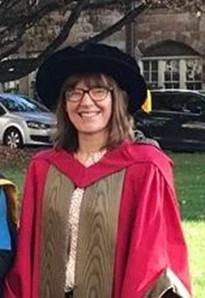
Admissions Office
admissions@worc.ac.uk01905 855111More to explore
Open Days
Visiting us is the best way to get a feel for student life at the University of Worcester.

The City of Worcester
Worcester is a welcoming university city with great transport links and plenty of student parking.

Accommodation
Benefit from our accommodation guarantee. We have rooms on campus to suit every budget including en-suite options.

